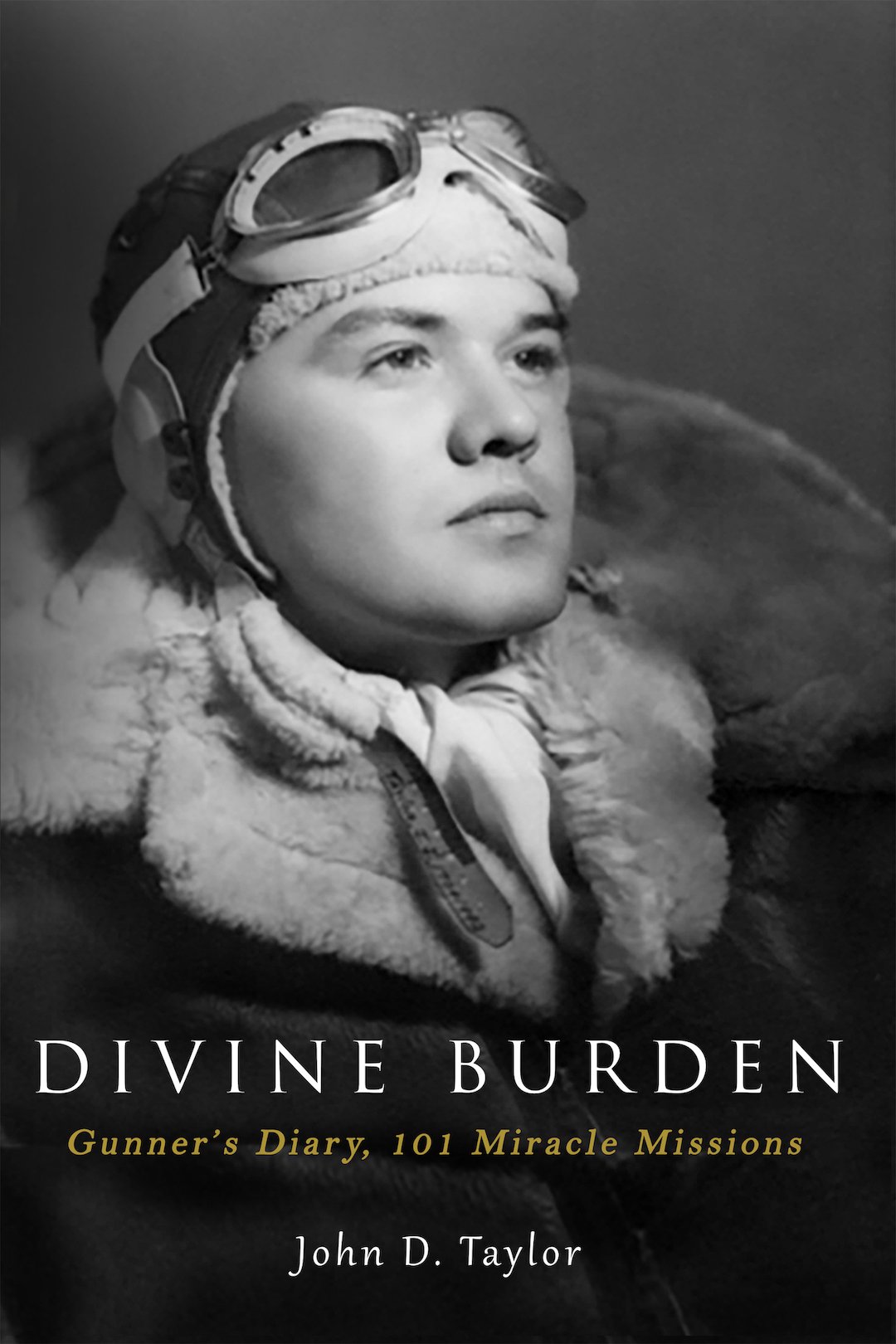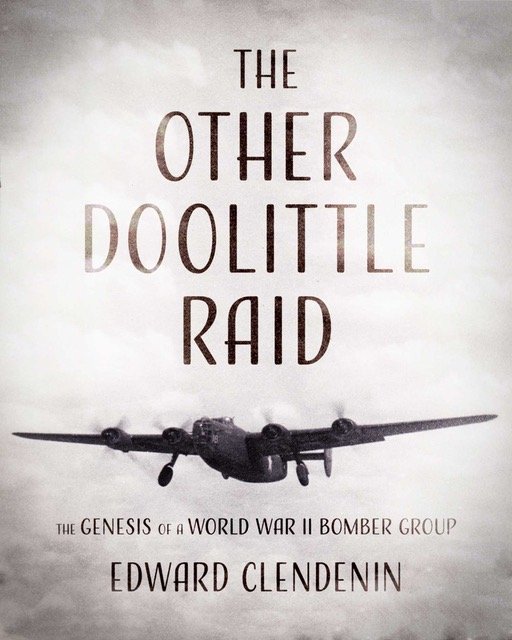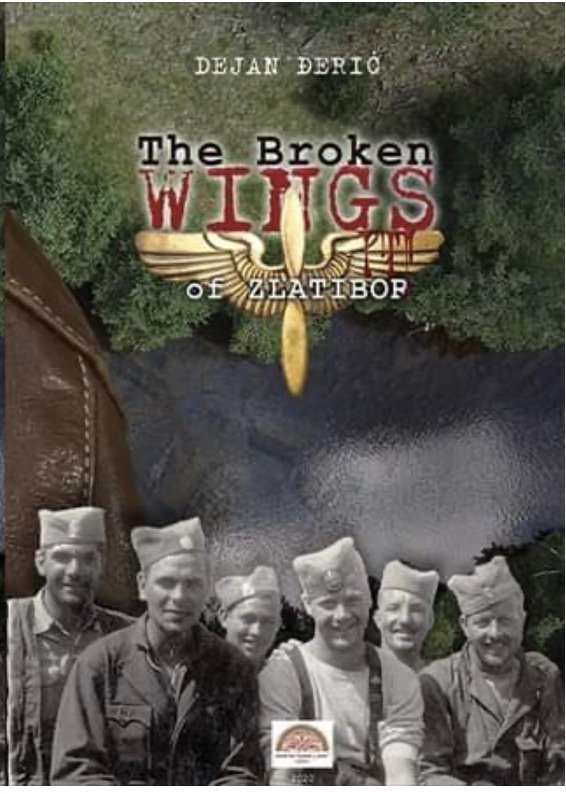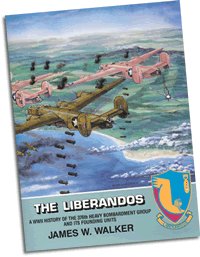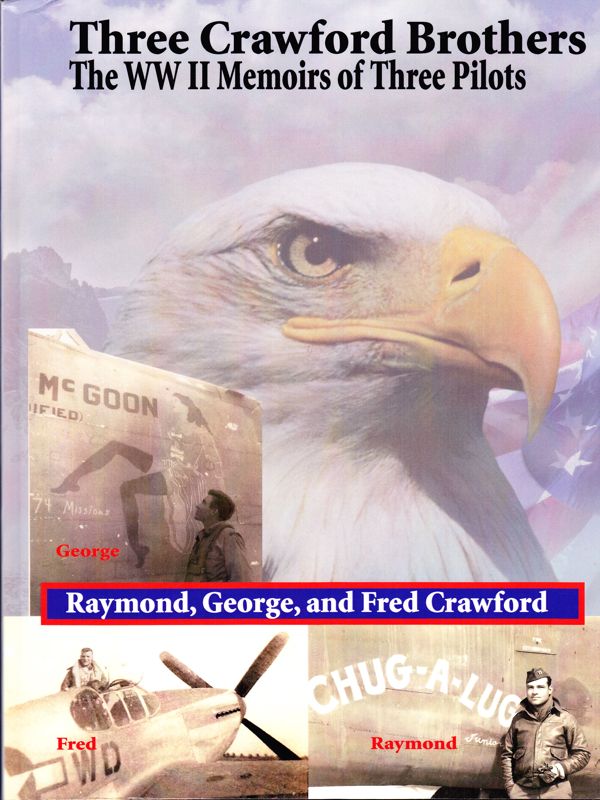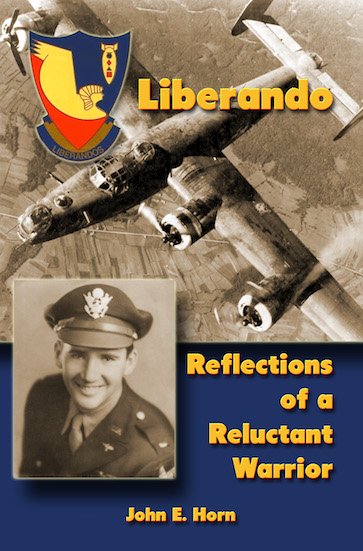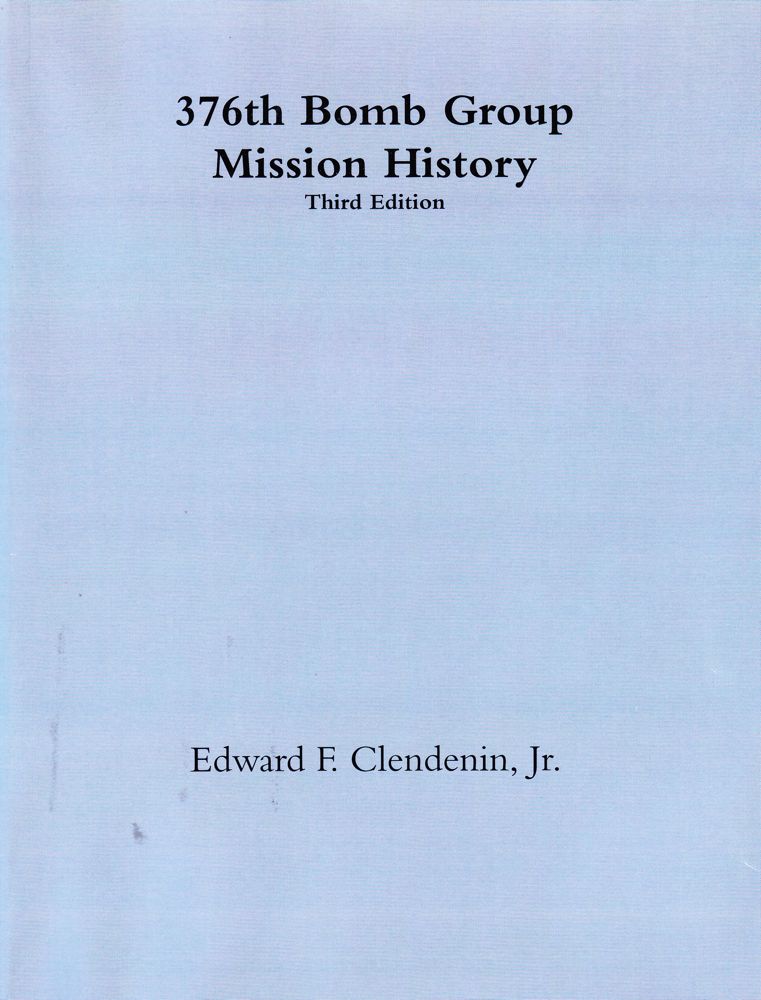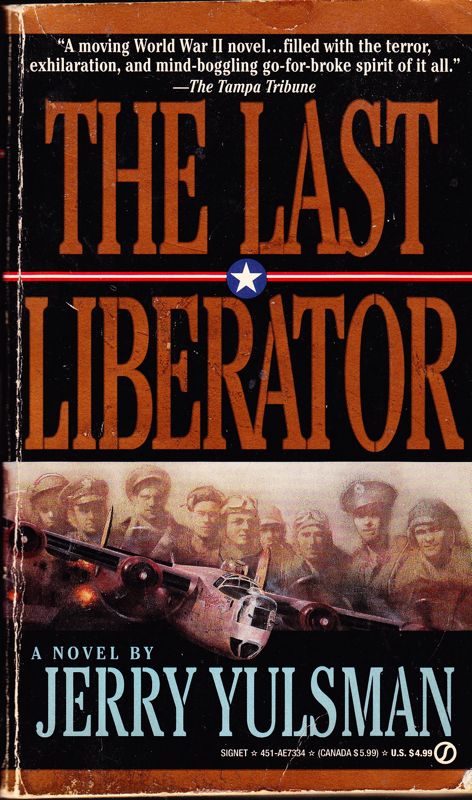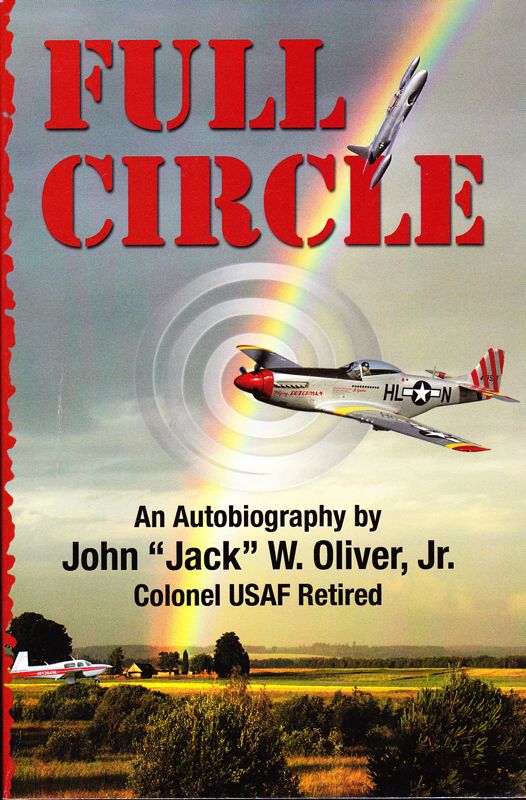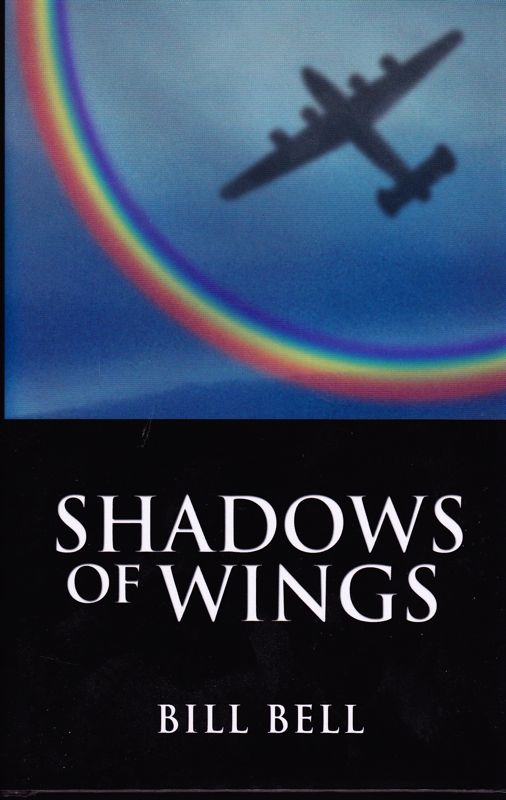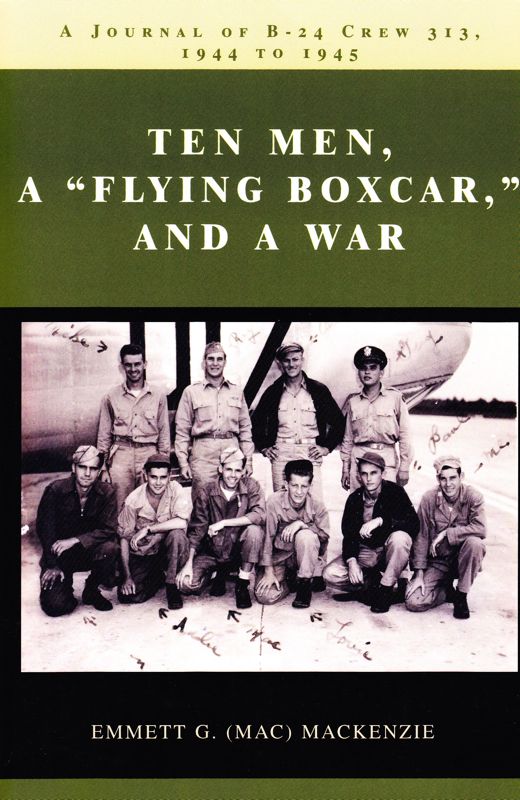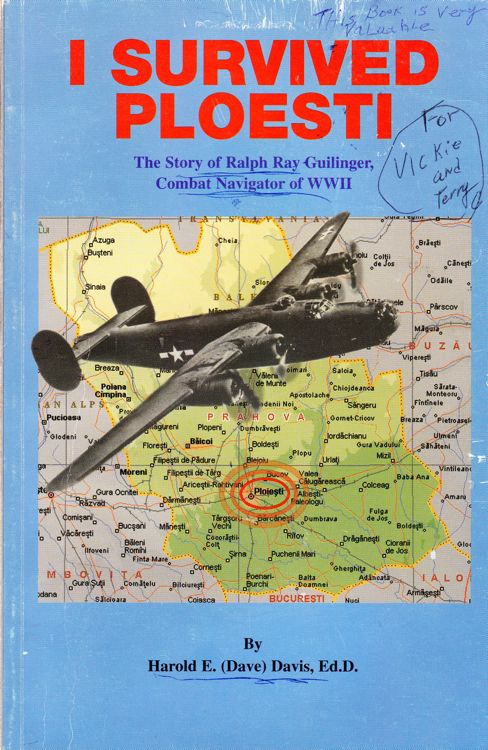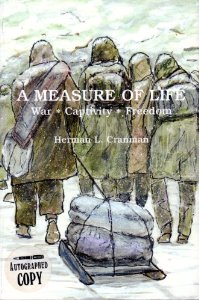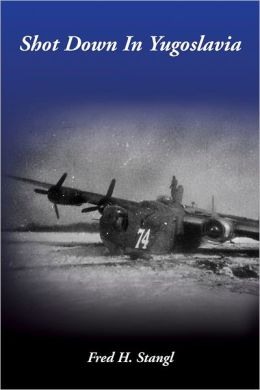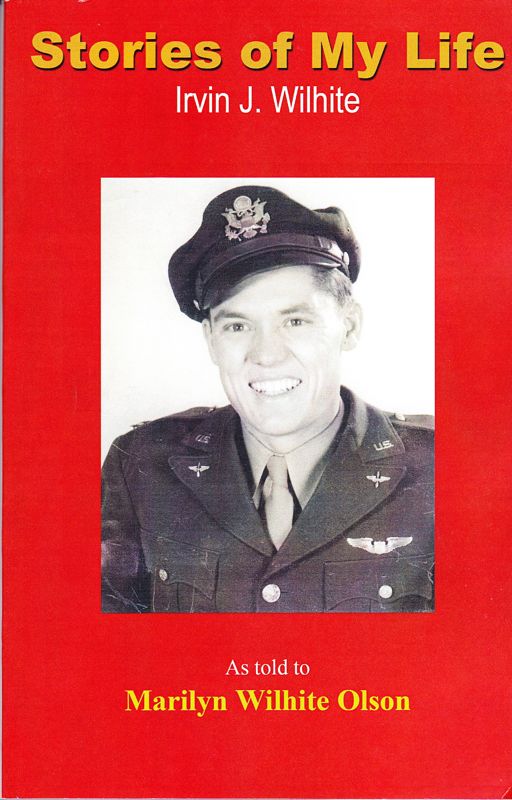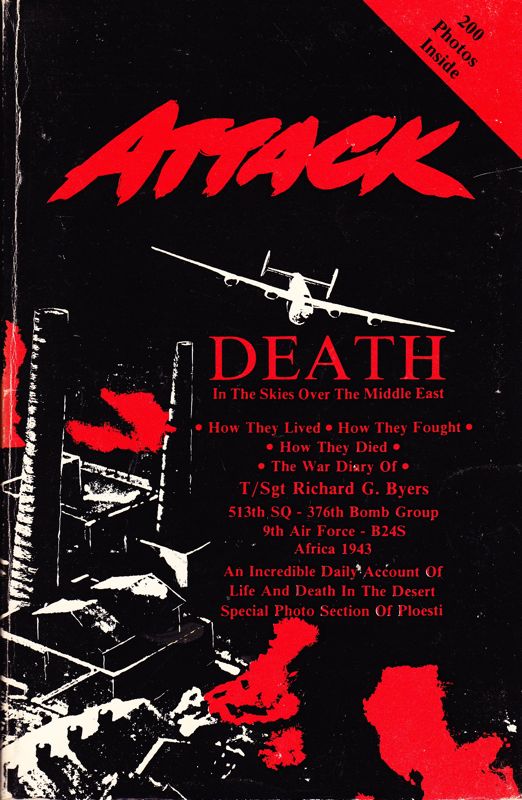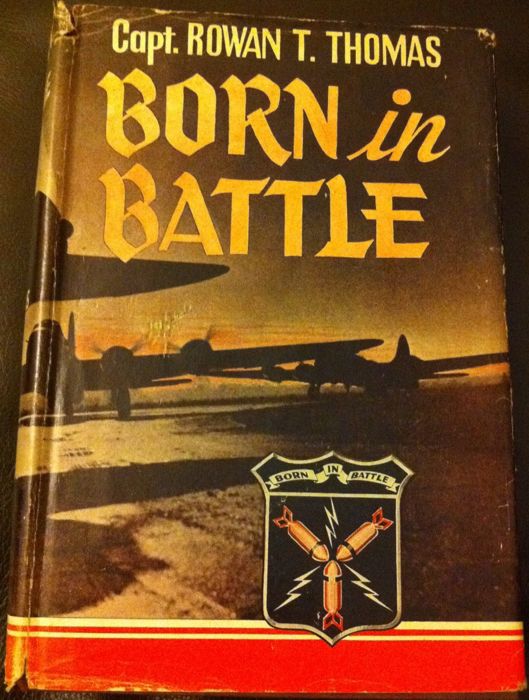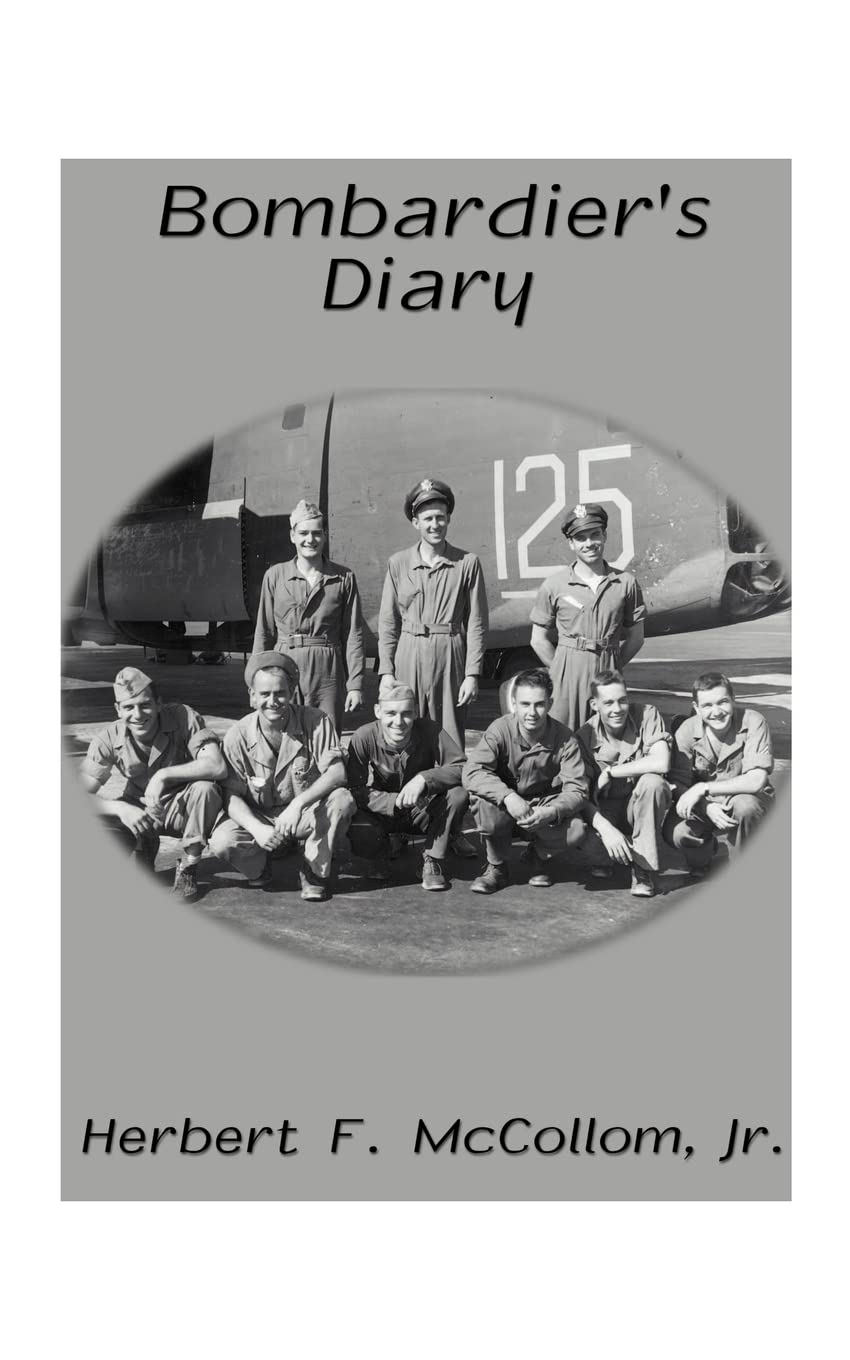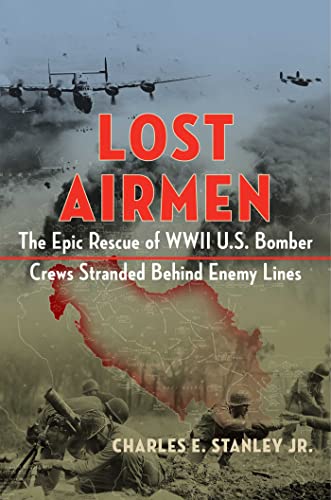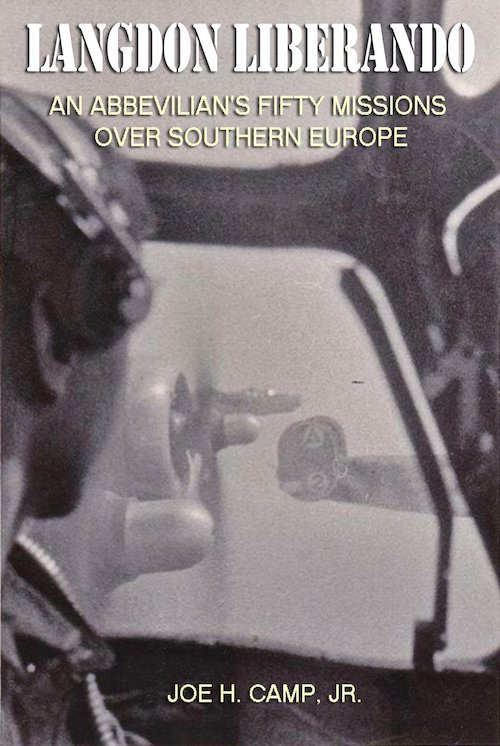Samuel D. Rose - POW
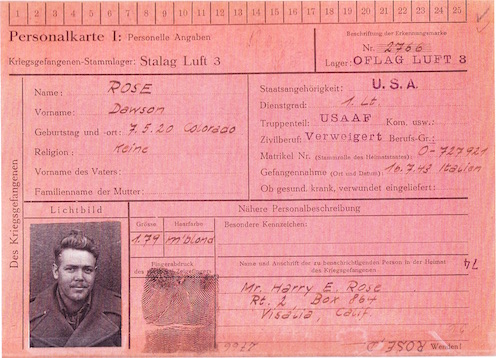
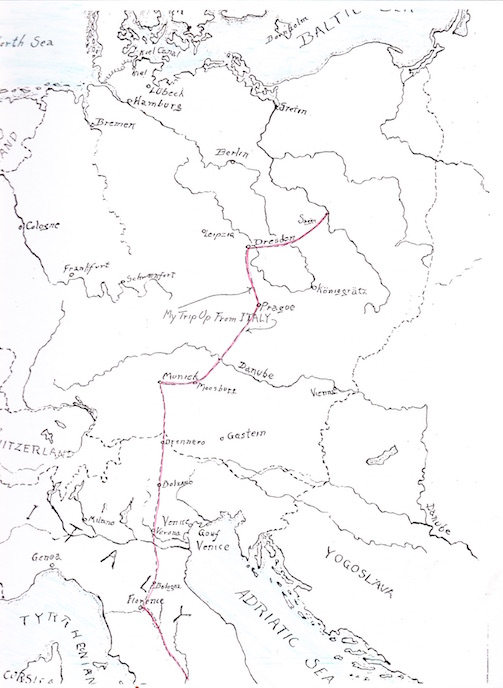
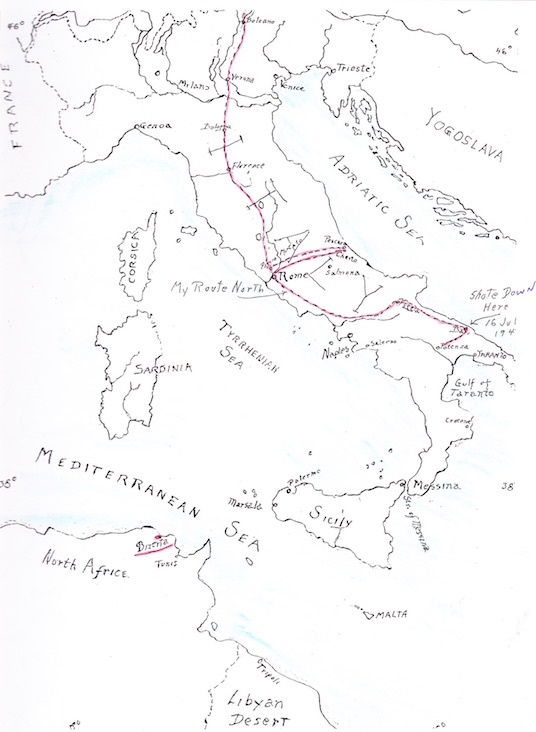
We had several air raids at night and the, A/A guns next door sure were loud. We all went to a shelter back of the barracks with the civilian neighbors. The guards wouldn't let us talk for some reason. The 20th a Stuka pilot visited us in his beautiful white and gold uniform. We had wooden platforms with a oven grass mattress about two inches thick to sleep on. After the first night we slept on the boards because the mattress was full of bed bugs and fleas. We threw them out. We had a friendly Lt. in charge of us, who knew how the outcome of the war would be, so he helped us when he could. A list of things that happened while there, made two trips to shelter the 22nd, got tooth brush and soap 23rd, had first bath 24th Nelson and Valentine were brought in 25th Lt. Titus came in 26th, Lt. Cochran with one eye out came in 27th, one of our air men could speak a little Italian and he talked the guard into getting us extra food and a bottle of wine. He brought us left overs from the officers mess. A large silver dish of macaroni, a stuffed pepper dish and a loaf of bread after which everybody got one cigaret, nice day. The 3rd August we left for Poggio Mirtato, and old monastery north of Rome. This was an interrogation camp, nice place on top of a hill looking out over a beautiful valley and other hills, each with a little town on it with a church. On Sunday we could hear a dozen different church bells, pretty. We had four to a room, each had a bed and a table in the center with four chairs where we played cards all day and ate our meals. Hot water for breakfast, if we had tea we made it. A bowl of water soup for lunch with two or three pieces of macaroni in it and for supper, the same with more macaroni in it. We got some Red Cross parcels which had food tea and coffee in them, but I think the Italians took most of them. From then on we lived mostly on Red Cross parcels.
We left Poggio and arrived Cheito P.W. camp near Pescara Italy on the east coast, about half way up the coast. This had been a political prisoner camp until General Rommel captured so many English, Australian, Indian troops in North Africa then it was taken over for them. Most of them were ground troops of some kind and had been a P.W. since 41. Me and my crew along with Sidney Shore's crew, shot down with me were the 2nd and 3rd American crews in that camp. The English were older, some much older than us fly boys as they called us. We got along OK but had trouble understanding them some times. Water was rationed, so water was on one hour a day. We had a large tiled bath room but not much water. We filled a large wood tub in the middle of the room and used that as long as it lasted. The toilets were porcelain and flat with the floor and hole in the proper place, with two raised places the size of you feet to rest on. You squatted and when there was flush water it ran around your feet and down the hole.
We stayed there until the 23rd of Sept. after the Italian's had capitulated. The camp C.O. wouldn't let anybody leave. The little town of Cheito was on top of a little hill that we could see from our camp down in the valley. The cute thing was a little street car that went up the hill every hour or so by going around and around, up and back watching it gave us something to do besides walk around camp. The Germans, of course, took over the camp. I was on the first truck to leave for Salmona, not too far west, to wait for a train up into Germany. Salmona was a British enlisted mens P.W. camp. They were well organized and got fresh bread out of town nearly every day. We stayed there about a week. When we left they gave us all good heavy blankets, I still have mine. They put us in box cars, standing room only. You don't think you can sleep standing up but you can. In a couple of days my navigator and I made ourselves hammocks cross wise the car. We took some rope we had and our blankets and swung them from the air vents on each side up about head high, after that we did great and made more room on the floor. We went through Rome, Florence, Bolognia, Verona, Bulzano and then Brennero. When we pulled into the station from the south a German troop train came in from the north. There was a hospital train in the yard with no engine. Our boys decided to bomb us at just that time. Our engine unhooked and hooked on the hospital train and pulled it out of the yard. The bombs blew hell out of the troop train and riddled ours but none of us hurt. An English sergeant got out some how and ran down the train unlocking all our cars so we could all get out. The Germans spent all afternoon rounding up the prisoners. Some Indian troops got into a wine cellar and didn't care what happened. They put us all in a walled in church yard for the night. One of the Indians gave a guard a bad time and he started to shoot him but a British officer stepped in between and talked him out of it and quieted the Indian.
I spent the night on the ground with my blanket under us and Jack Bently's
on top. He was a West Pointer and cousin of my bombardier, we called him the Pride of 41 because of how bad he looked the next morning. We went through Munich the next day and on to a POW camp at Moosburg Germany. There they had us all strip off and shower, our first hot bath since Benghazi. While bathing they put our clothes in a pressure like tank and sterilized them for bugs etc. We came out the other side of the building and dressed in sterile but not clean clothes. The camp was very crowded so we stayed until we could get a train out. We went up through Progue, Dresden, and ended at Stalag Luft 3, a POW camp for flying officers (Oflag Luft 3). This camp was cut out of a man planted forest near Sagan Germany, ninety miles south east of Berlin. We arrived here about 15th Oct. was photographed, finger printed, given a number (2766) and a barracks #56 in the center compound. .
The barracks was two large rooms with two small ones at the front for camp officers. Eight of us set up house keeping together in the back room. We had two story bunks with only six boards for springs. We got a large sack, called a Pollyass, which we filled with excelsior for a mattress. We arranged our bunks in a horse shoe with the open end to the wall, the other forming one side of a hall in the center of the room. We drew rations, cooked, slept, played together as a group. Later when the camp got more members we took in two more in our group. The Germans built more compounds so we stayed at ten. We did our own cooking so we divided the work up in pairs. Holly Midgley and I cooked together. Breakfast was a trip to the cook house where they furnished a pitcher of hot water. From our Red Cross parcels we got instant coffee or tea and sugar or jam. We divided those up so each could eat it all fast or slow. One of the cooks toasted thin sliced black german bread on top of the cook stove along with all the other combines in the back room, we had two slices each.
At lunch time the Germans either gave us boiled barley or dried cabbage soup. Most of the time we got a potato ration, some times cheese or margarine. The only meat ration was blood sausage and it came in a cows stomach, all the combines brought a pan and got their share. We never learned to like it. Supper was our big meal, usually with potatoes and what ever we could dream up from the Red Cross boxes. If the big white trucks with a Red Cross on them got in from Switzerland we got a parcel a man a week, otherwise what ever came through. We pooled most things until we got enough of anyone thing to make dry milk, cocoa, coffee, tea, crackers, chocolate bars, cigarets, bacon, jam, sugar, dried fruit, hardtack crackers in English parcels. We only got a few
of these things at a time. After we were there six months or so we got personal parcels from home, food and clothing. We had a barter system in camp with tobacco as a base price at one time one cigar was worth seventy-five cigarets.
I didn’t smoke so I asked for cigars. I could get two boxes every six months. Soon everybody was doing it. The price fell so I started to smoke. One box I smoked and gave the other away. For recreation we played cards, walked around the perimeter of the camp summer and winter. We got some bats and balls etc. from the red cross so baseball was played at times. The weather was nice in summer, shorts and bareback, but winter it got down in sub zero and no heat ~ the barracks. We slept with our clothes and had card board under our mattress which was getting pretty thin by then. The German issue of bedding vas a polyass, a sheet and two wore out Italian blankets, that were made for midgets. When we could get shredded paper out of parcels we put it between the blankets and tacked with yarn we unravelled from our Italian underware and made warm quilts, but short. My time was spent making plates and cooking· pots etc. out of tin cans. The best cans were dried milk because they were about the size of a one pound coffee can. By cutting off top and bottom and splitting the side you could make a plate out of two and a half cans.
The Germans gave us a zinc pitcher about 5 quarts size that said on the side no drinking water. It was supposed to be poison to drink or eat from it but at first we used it for all types of cooking. They also gave us a clay pitcher which lasted about a week. We got a bowl, knife fork and spoon and I made our plates, pots and cracker grinder. Some times we'd strain the juice off the barley at noon, put the barley in a stew and make a pie out of the juice. Take cracker crumbs and margarine for a crust, put cocoa and sugar in the juice and when it got cold you had a chocolate pie. Sometimes I'd burn some sugar in a pan, add a little water, sugar and margarine to flavor the barley soup
and you have butterscotch. We spent a lot of time playing cards, thinking about and talking food, cold and women. We had other things to do a theater group was formed and did several good plays. We bought several instruments and had an orchestra. We had a small library, some good books but most novels were English and when you read one that was enough.
I cut hair for a lot of the boys. At first all I had was pair of cuticle scissors, later I got regular scissors and towards the last the Germans gave me a pair of hand clippers. Dress code was up to you for a long while, then Col. Spivey, our camp C.O., thought we could clean up our selves and the barracks better so we had inspection Saturday mornings. Mopped the floor shaved and made up the bunks. By that time all of us had gotten parcels from home with such things as razors, tooth brushes and paste and clothes. The clothes all had to be G.I. because of escape possibilities. Everything coming into camp was inspected and shoes X-rayed. Mail and pictures came through pretty fast, the Germans encouraged such things. All the cans in our red cross parcels were punched in the tops with two holes so we couldn't keep them for escape purposes. We learned just because the spam etc. had green growing around the holes didn't mean to throw it away. The only time we got pretty sick was when the Germans gave us a large beef bone with a few scraps of meat on it. Everybody in our combine was sick by roll call the next morning. Roll call was twice a day, the guards went through the barracks and ran everybody on to the parade grounds and counted us all, rain or shine.
One Christmas some of the block commanders and others got all the dried fruit they could, and put it in a barrel in the cook house where it was warm. With water and yeast and time they had a potent drink on Christmas day. There were enough of them under the influence to make counting that evening hard for the guards, two of them even jumped in the hole in the ice on the fire pond.
The Germans paid us, on paper, a percentage of what their troops would get. This was according to the Geneva Convention. We had a person working for us, trying to buy anything we could use that he could find. One Christmas he got several barrels of Near Beer, enough for a gallon for each POW. We had a party and drank half of it and saved the rest for New Years, it tasted good but no alcohol.
We got B.B.C.-News every day on a hidden radio and the news was read in each barracks every night. We fixed a small room up for a library and on one wall we had a large map of Europe on it. We had both the east front and west front shown with pins and string. We had German radio in camp, that played news and music in English. We kept the war fronts up to date by the German radio. Some times after our news was read we checked how it compared with theirs, most of the time they came pretty close. We always had escape plans, tunnels etc. going on. Some very clever projects. They made a movie of one of our tunnels, The Great Escape. They found one of the tunnels and locked us out of our barracks for two days. They guessed it started in our barracks and it took them that long to find it and fill it up. They brought a fire truck in and flooded until it caved in. They found the outside end and sent a little guy down and he came up about twenty feet from my bunk. Getting rid of the sand was done in several ways. The sand was clean and yellow and couldn't be dumped in the camp and not show, so we put newspapers on top of the ceiling boards and spread it out up in the attic. Some of it was scattered around the yard by dumping it out our pant legs from sacks made of Italian underware with a draw string in the bottom end and then spreading it around with our feet as we walked. We had the Germans get us garden seeds and we all had gardens to bury the clean sand under the top soil, nobody could grow much because the ground was to sandy and no fertilizer. After we got back in, and this was snowy winter, the guards had knocked some of the ceiling boards loose and pushed all the sand down into our food, beds etc. If the role call didn't come out right some times the guard would set a table at the door of each barracks and take our file and check each man with his picture. We washed our clothes in a wash room in cold water and bath soap from home. If we wanted a bath we did the same thing. After six months or so they built a bath house out side the gate. The guards would take ten men at a time to the showers, hot water too. By this process we got a bath about every two weeks. The cooking was done in a back room with a small stove with an oven and a two lid top about eighteen inches square. We burnt pressed coal and it was rationed. We used about ten bricks 2 x 3 x 8 inches a day to cook for sixty people. The cooks worked it out so some cooked at noon some on top, some in the oven. At night the same thing only the last heat on top was for late hot water for tea or coffee.
We had benches around the kitchen walls so all who wanted to, and could, sat and read etc. This room was all the heat in the back of the barracks. Matches '"ere scarce so we had paper tapers in a can by the stove, when you needed a light you open the stove door lit a taper and put it back. One match a day and only certain people were allowed to light the fire in the morning. It took a lot of organization and patience to make things work with out a fight. We hardly ever had trouble, if we did we asked them to move to another barracks. Each barracks acted like a family with the combines even closer.
We had a pool to see who got the closest to the date of the end of war in Europe. Later I got a letter from a guy in Tulsa, OK, who we called the Goat, He stated he'd won so please send him a check for fifty bucks, which I did and he later said he'd gotten almost all the five grand in the pot. Christmas of 1944 people, who had friends in other compounds than ours, could get a pass for two hours, so I asked to see my co-pilot in the West Camp. He got separated from Kesler, Midgley and I because he broke his leg when he bailed out because his chute straps weren't adjusted properly. That was the first time I saw him since he left the flight deck when he bailed out, 16 July.
I saw my first jet air plane from camp. It came over and landed just south of us. It was twin engine and looked like an A20 but sounded odd like it was coasting. We got a rumor of what it was but didn't know until much later.
Life went on and many little things happened that were interesting but I can't remember them now.
About three a.m. on the 28th of Jan. 1945 we were all called out in the cold and snow and told we had to march out of camp then to get away before the Russians got there. We all got a new Red Cross parcel and told to take only the light stuff and what clothes and personal things you thought you could carry. none of us knew where we were going, just South and west between the Russian and the American lines. We were told to go back in for an hour so everybody started to cook and eat everything they couldn't carry. They opened the Red cross store room and we could take anything we wanted because we had over 55 thousand parcels for future use and we wouldn't be there. We had thousands of cigarettes which would be used for barter later. Our camp was the last to leave. We marched and rested until we got to a town called Halbau. We had our old center camp German guard with us, we called him Popeye. A German Maj. and Popeye found a large Lutheran Church for us to stay in, because it was 10 below outside where we'd all freeze to death. The church was heated but wasn't large enough. About 600 or 700 got in the other 1200 filled the morgue, opened some crypts and the parochial school. Some built lean-to shelters to get out of the wind.
I got in the music room with a bunch more. I slept with my head on the foot pedals of a Spinnet. We all had our own food so we ate what and When we wished as long as it was Red Cross food. The next day, with out much sleep during the night, the guards tried to find and count everybody. It took an hour and a half and still some missing. When we got underway, Popeye and the Maj. found bicycles and went ahead to find shelter for that night. We couldn't last another night like the last. At noon, that day, we stopped for an hour near a forest and an air field with no planes. \tie cooked and ate what we had. Everybody had a little fire going to warm up by too. We came to this large
farm with very large hay barns. We had hot water from the farm kitchen for coffee and tea. The Poles running the kitchen boiled potatoes and sold them for cigarettes, eight for one cigarette. We spent three nights in the barn, no smoking because of the hay. It was very cold but kept rolled up in our great coats and in the hay to stay warm. Jan. 31st we started out again hating to leave the shelter of the barns but had to, not knowing where night might find us.
One time we stopped in front of a house for a rest when the lady brought out a pot of hot water for us. She said she had a boy in PW Camp in the U.S. She hoped her son was being treated as good as us. \tie told her perhaps much better but thanks for the water anyway. After 50 Kilometers we came to the town of Muskau where arrangements had been made for us to stay in a large pottery plant. We stayed on the second and third floors, among all types of pottery, dry, drying and finished. My bunch stayed on top of a kilns, warm as toast and a vent just above the floor with a steel plate to cook on. I went down and saw them firing the kilns with peat from small rail cars run in front of the fire boxes. I also watched them open a kiln full of dishes. The first day out of camp four of us traded for a sled. It worked fine in the snow but the snow melted while at the pottery plant. We spent three days and nights here waiting for rail transport to take us farther south. We moved out Feb. 4th. Muskau was a very pretty town which had been a resort for German officers. That night we stayed at a crossroad where a few farm houses were.
Everybody spread out and found his own shelter. We slept in out buildings
of every sort. Germans cook and feed a lot of potatoes to there livestock.
We boiled spuds all night long, their spuds and cooker. When we left the next day we all had a pair of socks full of cooked spuds tied together thrown over our shoulder. On the outskirts of Sprimberg we stopped at a nice army post and ate our lunch. They also gave us about 500 gallons of barley soup, which was good. It was the first cooked food they had given us on the trip. At the pottery plant they gave us each a half loaf of bread and a pound of margarine. We used the margarine later on our spuds. It was rumored we were going to Moosburg near Munich, which turned out to be true. We had been there on our way into Germany and it was crowded but not like now. We had bunks with two men wide and two long and stacked up three high and an eight foot high ceiling. The stacks of bunks were two feet apart. We had one water faucet per barracks and a over worked bath room or out house. They gave us a bowl of dried red cabbage soup twice a day, and most of the time it was cold with grease floating on top of it. We lived on Red Cross food which was getting scarce because of transportation.
The camp was being expanded all the time because of the influx of prisoners of all nationalities. Temporary fences of hog wire were put up and large tents set up. Talking through the fence one day I found a member of my old crew, Charlie Marshall. He was my tail gunner and was in the hospital at the time I was shot down. Quite a surprise to see him a POW. He said he'd finished his tour in our outfit and went home for a while, had a fight with his wife and asked for combat duty. He was put in B25s and shot down on his third or fourth mission. Allyn Leavey was the other crew member in the hospital on the unlucky day and I've never seen or heard of him since. After the first of May 1945 we could hear big guns off to the west. We even saw a P51 strafe a train outside of our camp.
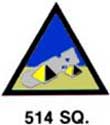
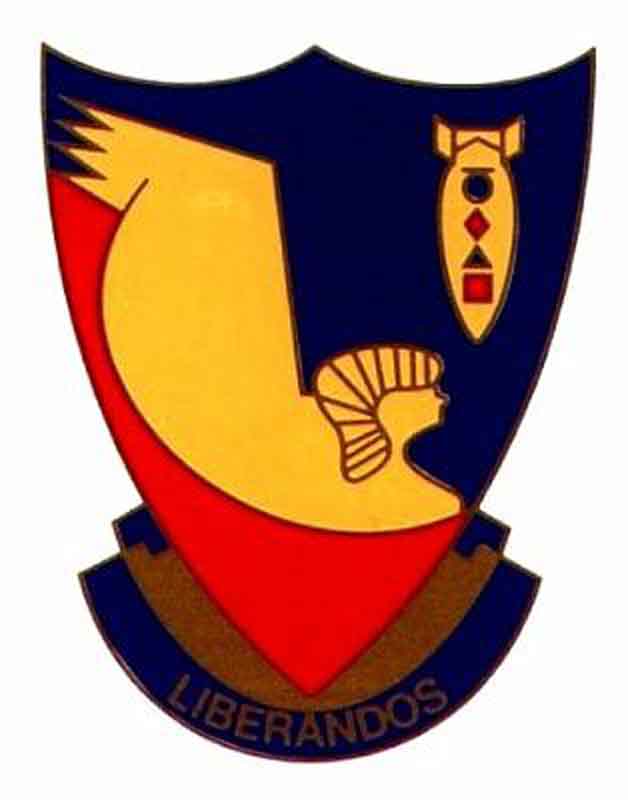
The website 376bg.org is NOT our site nor is it our endowment fund.
At the 2017 reunion, the board approved the donation of our archives to the Briscoe Center for American History, located on the University of Texas - Austin campus.
Also, the board approved a $5,000 donation to add to Ed Clendenin's $20,000 donation in the memory of his father. Together, these funds begin an endowment for the preservation of the 376 archives.
Donate directly to the 376 Endowment
To read about other endowment donation options, click here.
Reunion
NOTE change in the schedule !!
DATES: Sep 25-28, 2025
CITY:Rapid City, SD
HOTEL: Best Western Ramkota Conference Hotel; 2111 North LaCrosse St., Rapid City, SD 57702; 605-343-8500
Click here to read about the reunion details.
